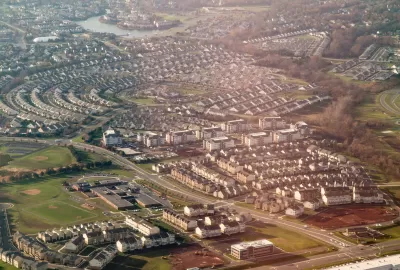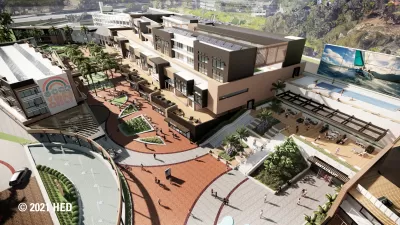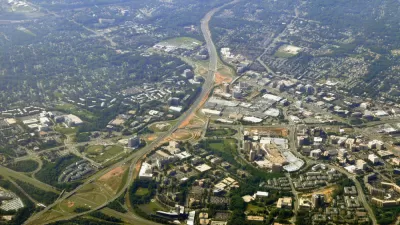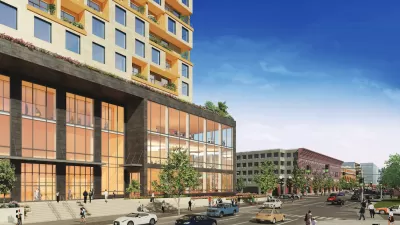How to equip suburban sprawl for a different future.

In an opinion piece in Greater Greater Washington, Aditya Inamdar writes, “We can’t change the original design of suburban neighborhoods, but we can retrofit suburbs to better serve the people who live and work in them.”
For Inamdar, redeveloping office parks and shopping centers to serve new, more efficient uses calls for two key aspects: private development and public policy.
In situations where private redevelopment is simple and profitable, Inamdar writes, “the role of public agencies is more regulatory,” to “ensure that the proposals align with the jurisdiction’s goals, approved plans, policies, and standards.” Public agencies can support the success of retrofitting projects by aligning on clear goals, streamlining permitting and approval processes where possible, and keeping the community involved throughout the process.
In other cases, public agencies may take the lead on a project. “This is typically the case with older suburban activity centers or commercial corridors with fragmented ownership, where it’s simply too complicated for a private developer to make a move.” When agencies want to target an area for redevelopment, they can encourage developers to become partners by backing up their plan with investment in infrastructure that will support the project, actively recruiting developers, and engaging in substantial community outreach work to “understand community needs and preferences before plans go to planning commissions and city/county councils for adoption.”
Inamdar sees the retrofitting of suburban shopping centers, malls, and office parks in the Washington, D.C. region as “an opportunity to create desirable places out of underutilized properties, undeveloped pieces of land, parking lots, and aging commercial strips” and “bring the benefits of urban spaces out to suburbia.”
FULL STORY: Two ways to give our sprawling suburbs a glow up

Alabama: Trump Terminates Settlements for Black Communities Harmed By Raw Sewage
Trump deemed the landmark civil rights agreement “illegal DEI and environmental justice policy.”

Study: Maui’s Plan to Convert Vacation Rentals to Long-Term Housing Could Cause Nearly $1 Billion Economic Loss
The plan would reduce visitor accommodation by 25% resulting in 1,900 jobs lost.

Planetizen Federal Action Tracker
A weekly monitor of how Trump’s orders and actions are impacting planners and planning in America.

Wind Energy on the Rise Despite Federal Policy Reversal
The Trump administration is revoking federal support for renewable energy, but demand for new projects continues unabated.

Passengers Flock to Caltrain After Electrification
The new electric trains are running faster and more reliably, leading to strong ridership growth on the Bay Area rail system.

Texas Churches Rally Behind ‘Yes in God’s Back Yard’ Legislation
Religious leaders want the state to reduce zoning regulations to streamline leasing church-owned land to housing developers.
Urban Design for Planners 1: Software Tools
This six-course series explores essential urban design concepts using open source software and equips planners with the tools they need to participate fully in the urban design process.
Planning for Universal Design
Learn the tools for implementing Universal Design in planning regulations.
Caltrans
Smith Gee Studio
Institute for Housing and Urban Development Studies (IHS)
City of Grandview
Harvard GSD Executive Education
Toledo-Lucas County Plan Commissions
Salt Lake City
NYU Wagner Graduate School of Public Service





























